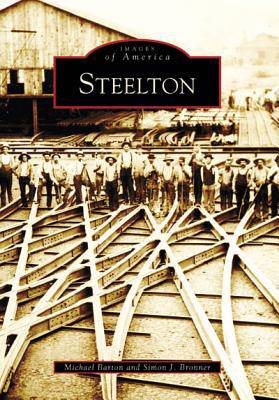
Bedankt voor het vertrouwen het afgelopen jaar! Om jou te bedanken bieden we GRATIS verzending (in België) aan op alles gedurende de hele maand januari.
- Afhalen na 1 uur in een winkel met voorraad
- In januari gratis thuislevering in België
- Ruim aanbod met 7 miljoen producten
Bedankt voor het vertrouwen het afgelopen jaar! Om jou te bedanken bieden we GRATIS verzending (in België) aan op alles gedurende de hele maand januari.
- Afhalen na 1 uur in een winkel met voorraad
- In januari gratis thuislevering in België
- Ruim aanbod met 7 miljoen producten
Zoeken
Omschrijving
For much of the 20th century, the name Steelton represented a great industrial complex that stretched nearly four miles along the Susquehanna River near the state's capital of Harrisburg. Immigrants from all over Europe, particularly Slavs and Italians, worked with African Americans from the South at the Bethlehem Steel Company and gave Steelton its reputation for ethnic diversity, second only to its fame for industrial productivity. Catholics, Protestants, and Jews filled the town's various houses of worship, but the taverns on Front Street, across from the mill, were crowded too. The town's powerful athletes were often state champions, beating schools many times larger. The townsmen were all proud as well of their loyal service in U.S. forces in the two world wars. The vintage images in Steelton chronicle the history of this exceptional and diverse community.
Specificaties
Betrokkenen
- Auteur(s):
- Uitgeverij:
Inhoud
- Aantal bladzijden:
- 128
- Taal:
- Engels
- Reeks:
Eigenschappen
- Productcode (EAN):
- 9780738557427
- Verschijningsdatum:
- 9/06/2008
- Uitvoering:
- Paperback
- Formaat:
- Trade paperback (VS)
- Afmetingen:
- 167 mm x 233 mm
- Gewicht:
- 322 g

Alleen bij Standaard Boekhandel
+ 69 punten op je klantenkaart van Standaard Boekhandel
Beoordelingen
We publiceren alleen reviews die voldoen aan de voorwaarden voor reviews. Bekijk onze voorwaarden voor reviews.









